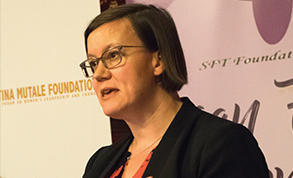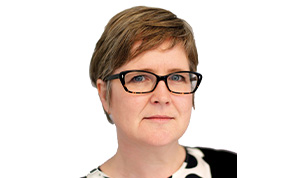No excuses for not tackling underlying problems, warns PAC
The influential Parliamentary committee’s report – NHS capital expenditure and financial management – follows its inquiries into NHS capital and financial sustainability. In terms of returning to the delivery of normal NHS services alongside Covid care, the committee warned that the government does not have either a clear understanding of the personal protective equipment (PPE) needed for clinical and care workers or how to distribute it. And it added that provision was particularly fragmented in the care sector.
The committee has given the Department of Health and Social Care two months to clarify when it expects to have a predictable supply of stock and ready access to PPE supply within both sectors. ‘This should include detail on the roles and responsibilities for the procurement and distribution of personal protective equipment across NHS and social care settings,’ it said. And referring to the highly public troubles in procuring PPE during the first phase of the virus, it said it was ‘absolutely vital that the same problems do not happen again in the event of a second wave’.
More generally, the committee called for the central bodies to produce a coherent plan for the return to normal services and service improvements, recognising that waiting times were increasing and lists getting longer even before the arrival of coronavirus. The committee underlined the point that the service will need additional capacity to treat the same number of patients as before, let alone make progress with the significant backlog that has built up during the Covid response.
The MPs also warned against using the Covid crisis as an excuse not to address long-standing issues, including: workforce shortages; coherent and aligned capital investment strategies; and trust deficits. ‘The pandemic has thrown the deep, long-term underlying problems in NHS capital and financial management into stark relief,’ said PAC chair Meg Hillier. ‘There is no room, and must be zero tolerance, for allowing the underlying funding problems to continue.’
The report highlighted the failure to publish a capital funding strategy to support the NHS long-term plan and raised concerns about the level of backlog maintenance. In October last year, this stood at £6.5bn with £1.1bn of this being deemed as ‘high risk’.
While the Department did announce plans last year to build 40 new hospitals as part of its Health Infrastructure Programme, the funding to deliver this programme is not yet in place. And more recently, capital expenditure requests have had to be clearly linked to the Covid response. (Subsequent to the committee’s inquiry, the Department has announced that £1.5bn will be added to this year’s capital departmental expenditure limit to support hospital maintenance, remove mental health dormitory wards and improve A&E capacity.)
However, a long-term capital settlement is still needed to enable all NHS bodies to plan for future developments, rather than only being able to make short-term commitments. ‘The Department and NHS England and NHS Improvement should identify a capital strategy and provide clear guidance to local partnerships that supports the NHS long-term plan, including expectations on how backlog maintenance costs will be addressed alongside competing priorities for digital investment and the Health Infrastructure Programme,’ the report said.
NHS Providers deputy chief executive Saffron Cordery (pictured) said a capital investment strategy was needed urgently as the NHS sought to restore and expand services. ‘As the PAC report acknowledges, it is vital that NHS England and NHS Improvement and the government have a strategy to deal with this, and for longer-term capital investments. In our RebuildOurNHS campaign, we have called for an NHS multi-year capital budget, bringing expenditure into line with comparable economies, that allows them to plan for the future,’ she added.
The writing-off of loans owed by financially struggling trusts earlier in the year has been widely welcomed as a sensible step forward – removing the administrative burden of managing this support. But the conversion to public dividend capital will still mean a cost for NHS trusts and the committee said it would not solve the underlying problems facing these bodies – a point made by the HFMA in its evidence to the inquiry. Writing-off of loans was not a substitute for a sustainable system of proper funding, the committee said.
The trust sector has not been in surplus since 2012/13 and the committee pointed out that the 10 trusts with the worst financial results reported a combined deficit of £844m in 2018/19 – up from £758m in 2017/18. It called for a plan with a timetable of steps aimed at getting the 10 most financially distressed trusts back to financial balance – and asked NHS England and NHS Improvement to report back to the committee by December this year.
Ms Cordery said the provider sector would only return to financial balance once the underlying and structural financial issues in individual trusts were addressed. She called for clarity from the government, NHS England and NHS Improvement on how this would happen.
She added: ‘We welcome PAC’s recognition that trusts will need support and guidance to plan beyond the summer and respond to winter pressures, as they are also being required to retain spare capacity for future surges in Covid-19 cases. There must be enough money available to the provider sector, and it must be accompanied with a framework that supports appropriate prioritisation, good local decision making and value for money.’
Related content
We are excited to bring you a fun packed Eastern Branch Conference in 2025 over three days.
This event is for those that will benefit from an overview of costing in the NHS or those new to costing and will cover why we cost and the processes.